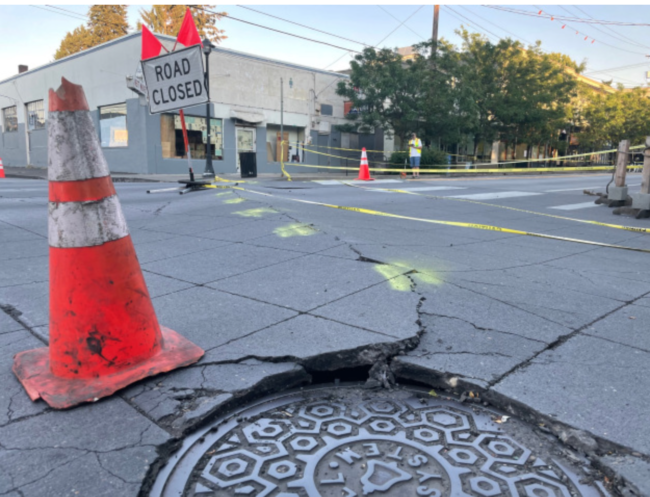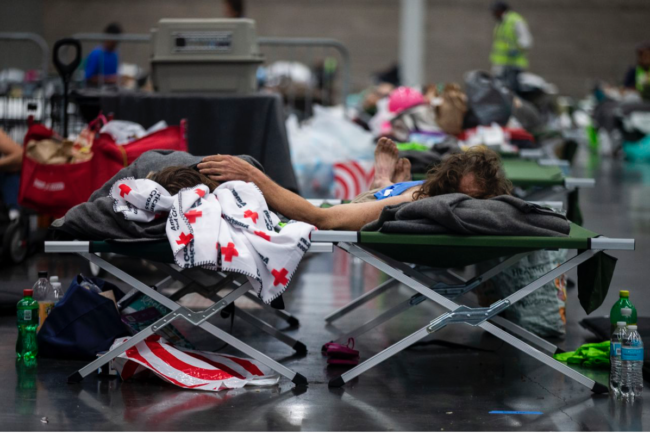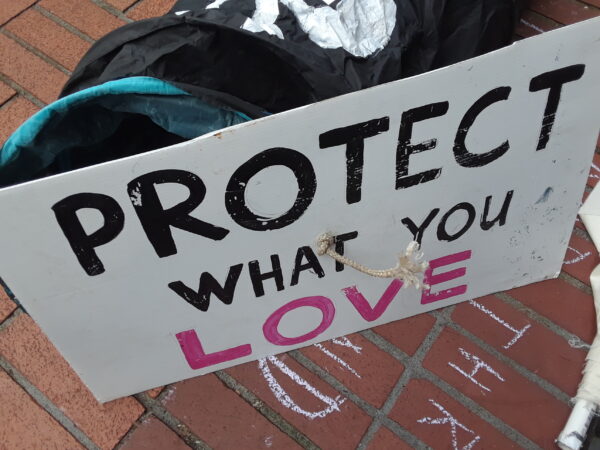GUEST POST by JANET WEIL
Last week I was in the grip of a climate anxiety attack, stronger than anything I have felt thus far.
After looking online at heat maps of the Pacific Northwest, where the temperature was predicted to rocket to well over 100 degrees F, I felt like screaming. I sat shuddering on my bed. Needing support, I called the youngish man with whom I co-edit the newsletter for our local Extinction Rebellion group. My voice broke as I began telling him my fears.
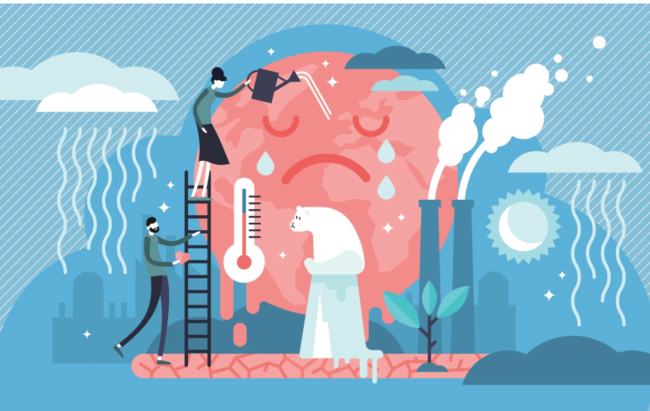
“Ecoanxiety” is the name given to those, like the author, who worry about climate change escalating out of control
“I guess I’m a good listener,” he said later in a group conversation, as we remembered that moment. “I always expect the news to be bad.”
“I always expect the news to be bad.”
Let that sink in. That’s trauma talking. He has never known a world that has taken the climate crisis seriously. The news was bad. The predictions came true: Portland, Oregon sweltered under record highs of 108 on June 27, then 116 on June 28. Light rail could no longer function. Summer schools and outdoor pools closed. Farmworkers could only harvest Oregon’s delicate strawberries between 5 and 10 am; the rest of the season-end crops rotted in the fields.
Dozens of Portlanders suffering from heat stroke, including young people, were rushed to local hospitals. Restaurants and bars closed. Cooling centers opened, and people without home air conditioning sought shelter there, or in libraries. Mutual aid groups brought help to the unhoused. Stores sold out of window AC units, ice, and drinks.
Some places in the Pacific Northwest were hit even harder. Heat dome = hell zone.
As I write this, I am sitting in my home with all the blinds and curtains closed, hoping that my neighborhood does not experience a power outage. The stove’s off, the laundry’s piling up, almost all the lights are off. The AC is blasting. I feel trapped.
But my real fear is not that my AC will fail, or that if the heat gets even worse, I can’t leave the area.
My real fear is that young(er) people will turn from old(er) people. That they will refuse to work with us, listen to us about anything, accept our belated help, or help us in turn. “You had your chance!” they will scream. “You had decades! You believed the lies, you shrugged it off, you let this situation deteriorate into a global crisis. You shopped and traveled and enjoyed what we will never have. And now we’re facing a very dangerous future. Fuck off!”
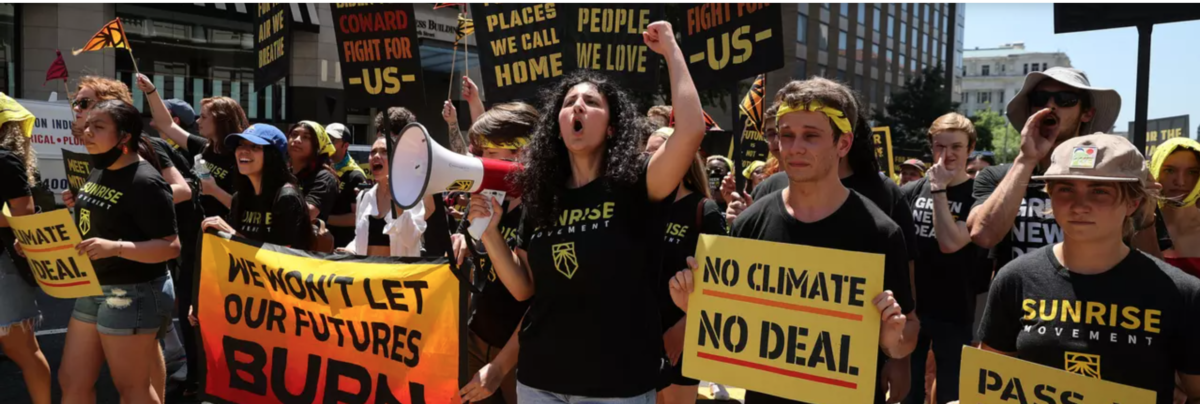
Young Sunrise climate activists marching to the White House to demand a meeting with President Biden, June 28, 2021 (Common Dreams)
Young climate activists, including Greta Thunberg (to her disgust), are commended for “bringing hope” to high-profile conferences before the adults in the room get down to climate talks: “goals” without plans or financing, empty promises of how great things are going to be, usually in 2050.
Recently Climate Envoy John Kerry put out a statement about his meetings with leaders in oil-producing nations – not about how they will reduce and wind down fossil fuel production, but about how their petroleum-based wealth will build out new projects in India and elsewhere. “It’s the biggest transformation since the Industrial Revolution!” he enthuses.
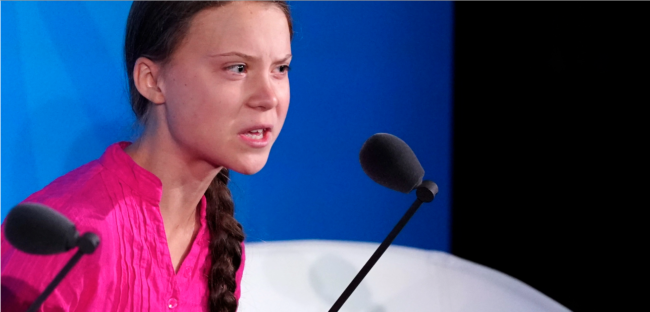
Greta Thunberg’s passionate speech at the UN, September 23, 2019, where she rebuked world leaders for their failure to take climate change seriously (Atlantic Magazine)
Greta’s words cut through the happy talk: “People are dying. Entire ecosystems are collapsing. We are in the beginning of a mass extinction. And all you can talk about is money and fairytales of eternal economic growth. How dare you!”
Young people are taking action, not vaguely hoping, but laser-focused on specific demands. They are still open to asking for our help. Some suggestions:
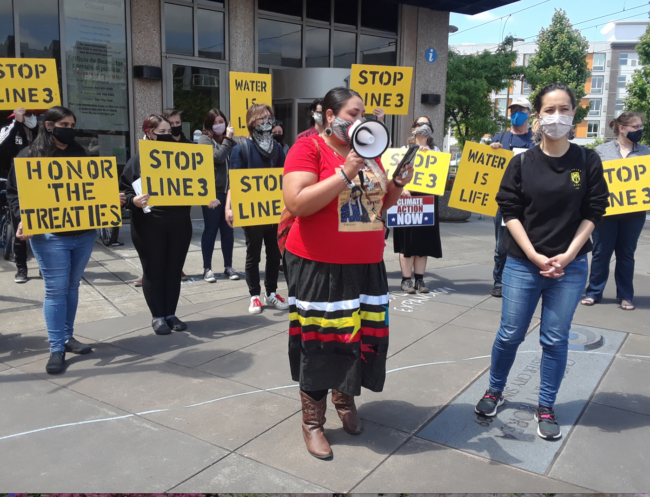
Rally led by young Indigenous woman with local Sunrise Movement group in Beaverton, Or. (Janet Weil)
In politics: Sunrise Movement
In the legal system: Our Children’s Trust
In schools: Youth Climate Action Coalition
What are we leaving for our children if we don’t take action? A livable planet is the most minimal political demand ever, but after decades of denial and stalling, it will take shared, maximal action to achieve. Let’s go!
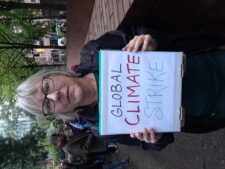 A retired ESL teacher and newly fired-up climate/eco activist, Janet Weil lives in Portland, Oregon with her husband. She enjoys spending time with her extended family, and in the great bookstores and libraries in the metro area. She shares political views and her photography on Twitter: @JanetRWeil.
A retired ESL teacher and newly fired-up climate/eco activist, Janet Weil lives in Portland, Oregon with her husband. She enjoys spending time with her extended family, and in the great bookstores and libraries in the metro area. She shares political views and her photography on Twitter: @JanetRWeil.
